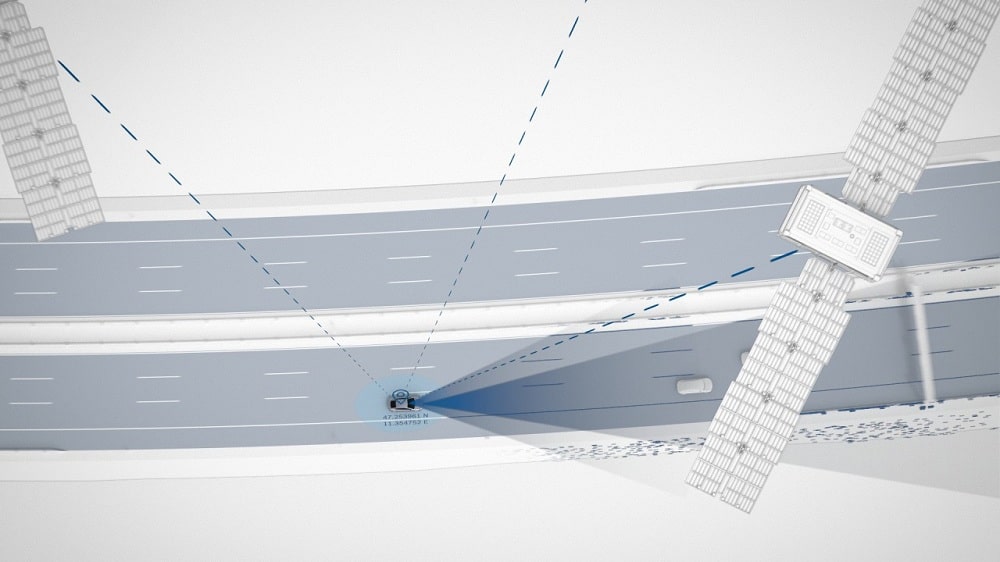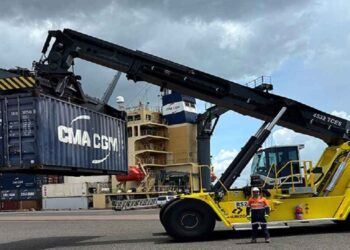Vehicle safety systems and Bosch are synonymous. From the introduction of the first anti-lock braking system in 1978 to Electronic Stability Program (ESP) — often known as ESC (electronic stability control) — in 1995, the global supplier of technology and services has been part of numerous firsts that have helped to improve safety on the roads. From 2011 to 2015, the National Highway Traffic Safety Administration estimates more than 7,000 lives were saved in the United States due to electronic stability control technology.
Bosch continues to invest considerable research and development efforts toward advancements in automated driving and vehicle safety technology. More than 5,000 Bosch engineers are working on automated technology globally, nearly double the amount from just two years ago.
Automated technology is an area of future promise that’s already a growth area for Bosch today. In 2019, global driver assistance sales for Bosch will surpass 2 billion euros for the first time, up from 1 billion euros in 2016. And in 2019, Bosch forecasts 15 percent growth globally in this area.
“Technologically and commercially, we’re leading the way in driver assistance,” said Scott Winchip, regional president of Chassis Systems Control for Bosch in North America. “Advanced driver assistance systems present the opportunity to greatly improve vehicle safety in the near term. Bosch sensors and systems expertise are key enablers for progress to continue bringing new and improved safety technology to the road.”
As part of its Vehicle Safety Showcase event at the Bosch Proving Grounds in Flat Rock, Mich., Bosch will showcase multiple advancements and safety technologies that enable further growth and progression in advanced driver assistance systems (ADAS) and automated technology.
Safety technology standard in automotive moves to trailers
Bosch and Dexter Axle Company will show the Dexter Tow Assist™ ABS & Sway Mitigation System powered by Bosch for the first time publicly at the Vehicle Safety Showcase. The technology combines the expertise of Bosch in safety systems with Dexter, the leading manufacturer in North America for axles, components and suspensions systems; supplying axles to the utility, recreational vehicle, heavy duty, agricultural, marine and specialty trailer markets.
Tow Assist™ features anti-lock braking (ABS) for trailers. ABS, which prevents the wheels from locking during braking and ensures that the vehicle remains steerable as it is brought to a quick and safe stop, has been a standard feature in passenger vehicles in the United States since 2013. Now with Tow Assist™, the technology is available in trailers to help maintain control during braking.
Tow Assist™ also include sway mitigation, the system automatically uses the brakes – without driver input – to control unit sway while it is motion. This helps maintain safety in windy conditions, during improper unit loading or also increased stability during emergency driving conditions.
Emergency braking continues to advance
Bosch has also been a pioneer in automatic emergency braking systems. The Integrated Power Brake is a vacuum-independent decoupled brake system that can be used with all drivetrains, including hybrid and electric vehicles. The vacuum-free braking system replaces the traditional vacuum booster and allows for high-pressure dynamics for automatic emergency braking.
Sensors fuel advancement in ADAS
Bosch sensors are at the core of many safety technologies. Since it began production in 2000, Bosch has produced more than 20 million radar sensors globally and the company expects sales of radar sensors to grow 20 percent globally this year. These sensors enable features such as automatic emergency braking and more. At the Vehicle Safety Showcase, Bosch will highlight new radar capabilities and applications for radar, including cross-traffic alert functionality. This technology uses a corner radar unit to detect a perpendicularly on-coming vehicle, such as when the on-coming vehicle runs a stop sign or red light, so that emergency braking can be applied.
New sensors will also fuel the advancement of automated features. Bosch has developed a sensor that allows vehicles to precisely determine their position: the vehicle motion and position sensor. Automation requires highly precise, reliable and safe vehicle localization. The vehicle motion and position sensor, being demoed in a vehicle for the first time publicly in the U.S. at the Vehicle Safety Showcase, brings together the global navigation satellite system (GNSS) position signals, correction data (to overcome any inaccuracies in satellite data signals as they make their way to the ground) and information from the inertial sensors, the wheel-speed sensors, and the steering-angle sensor. It includes a high-performance receiver unit for signals, which a vehicle needs to determine its absolute position.


































